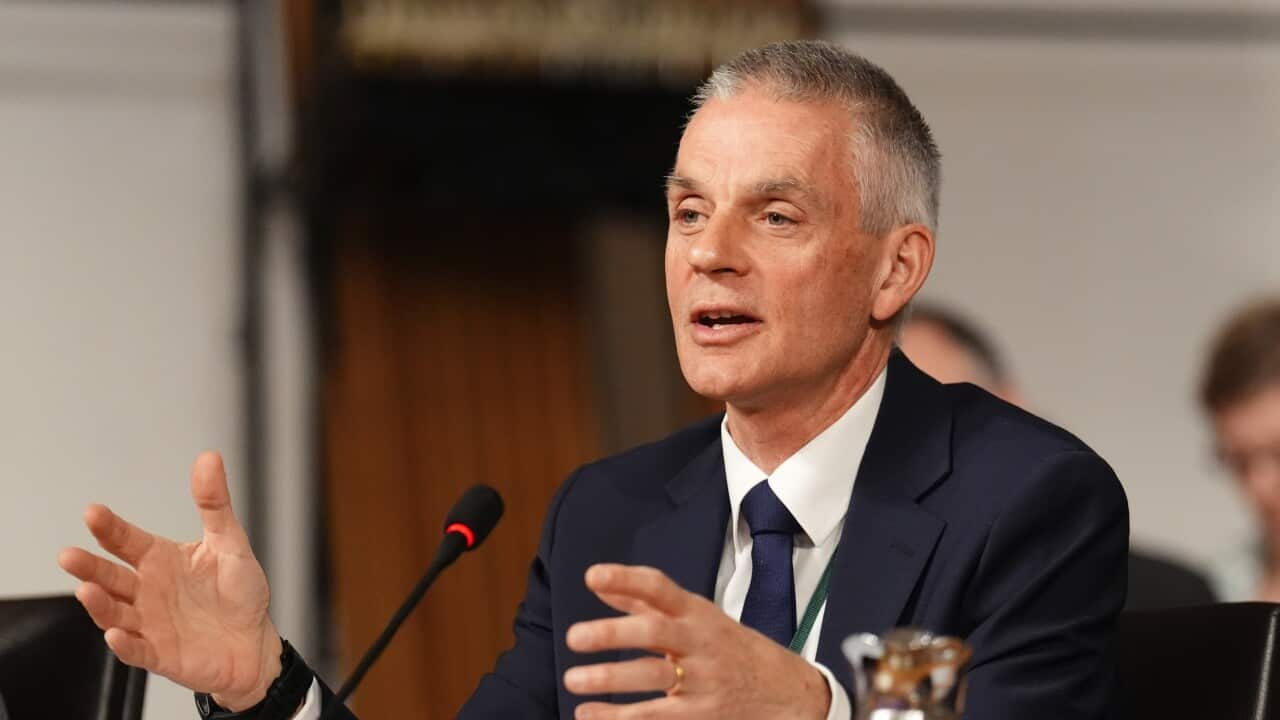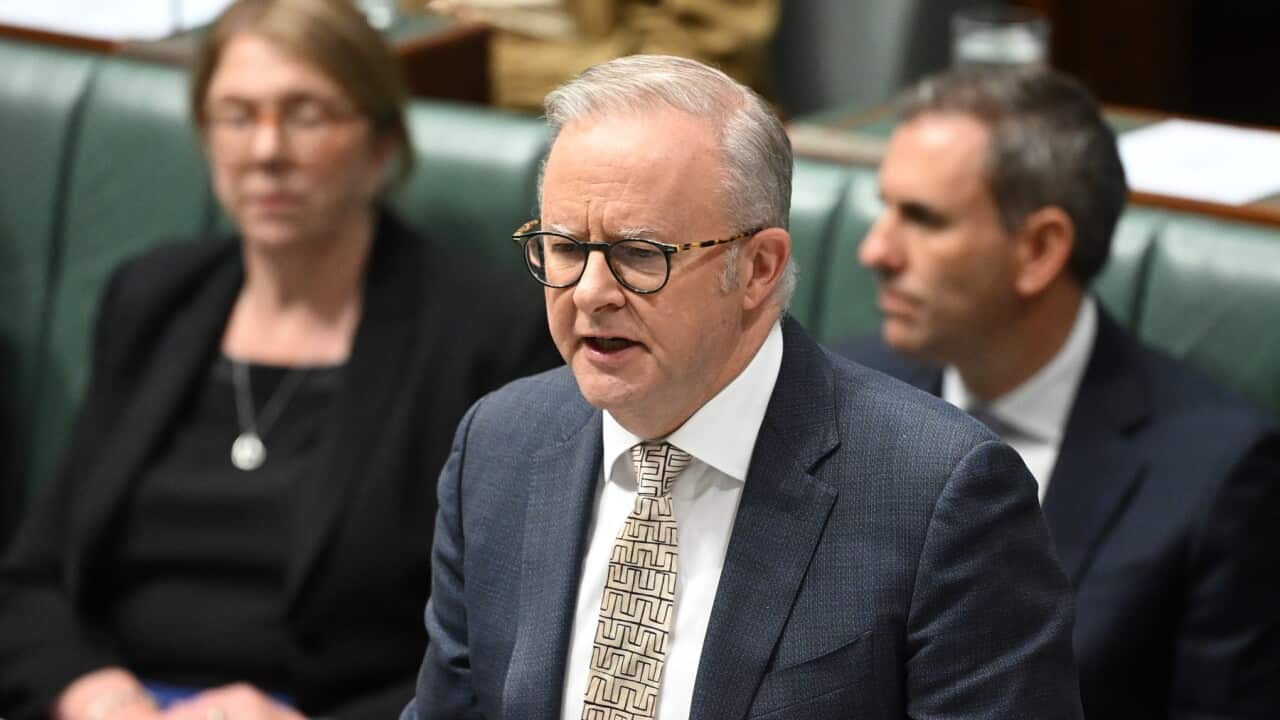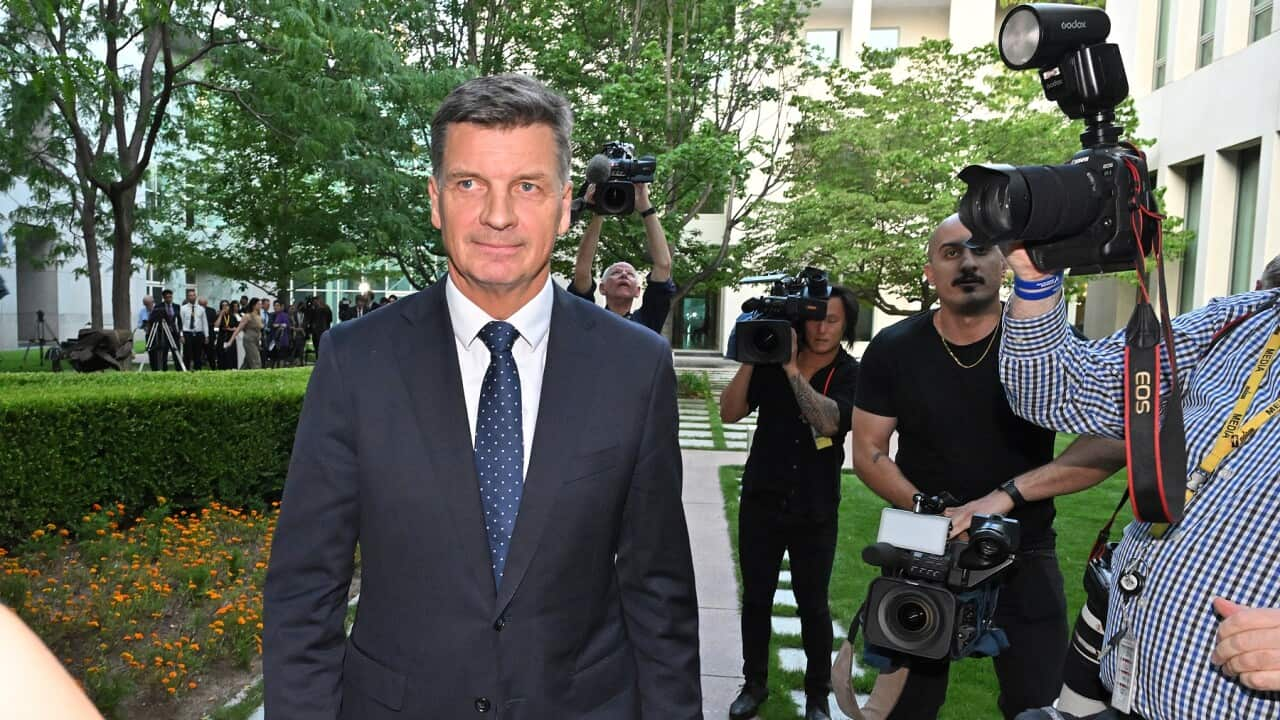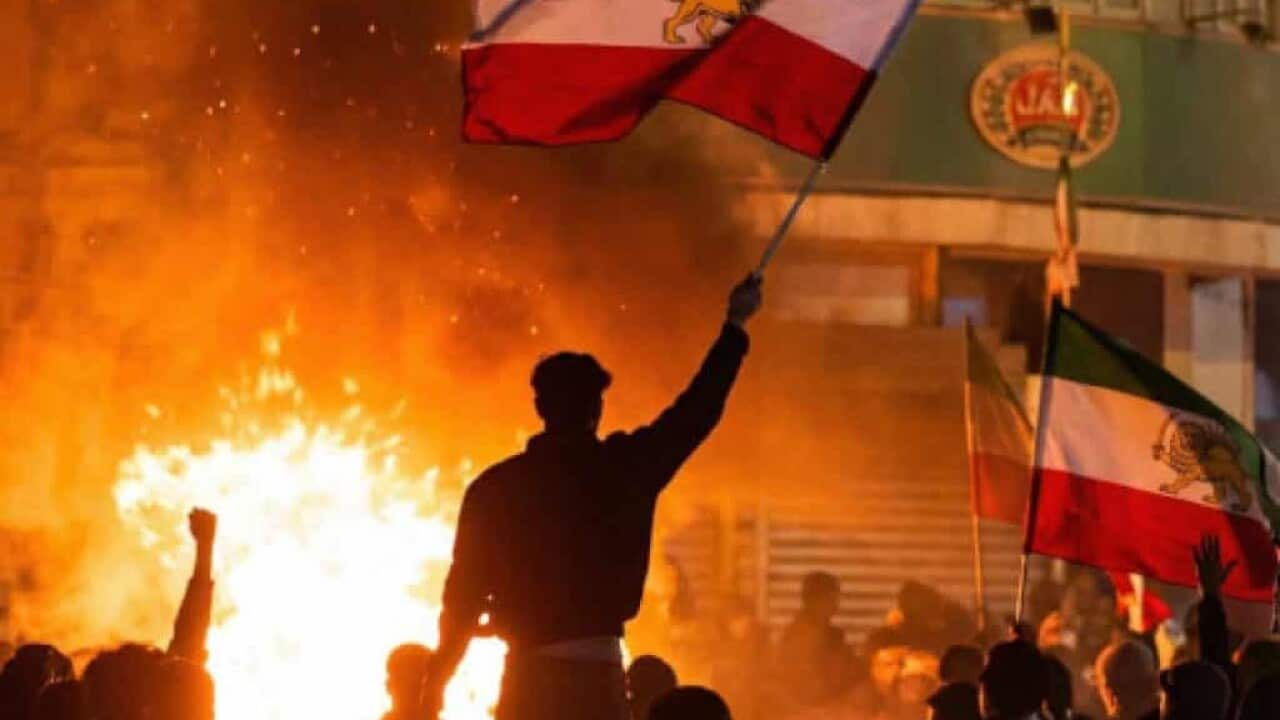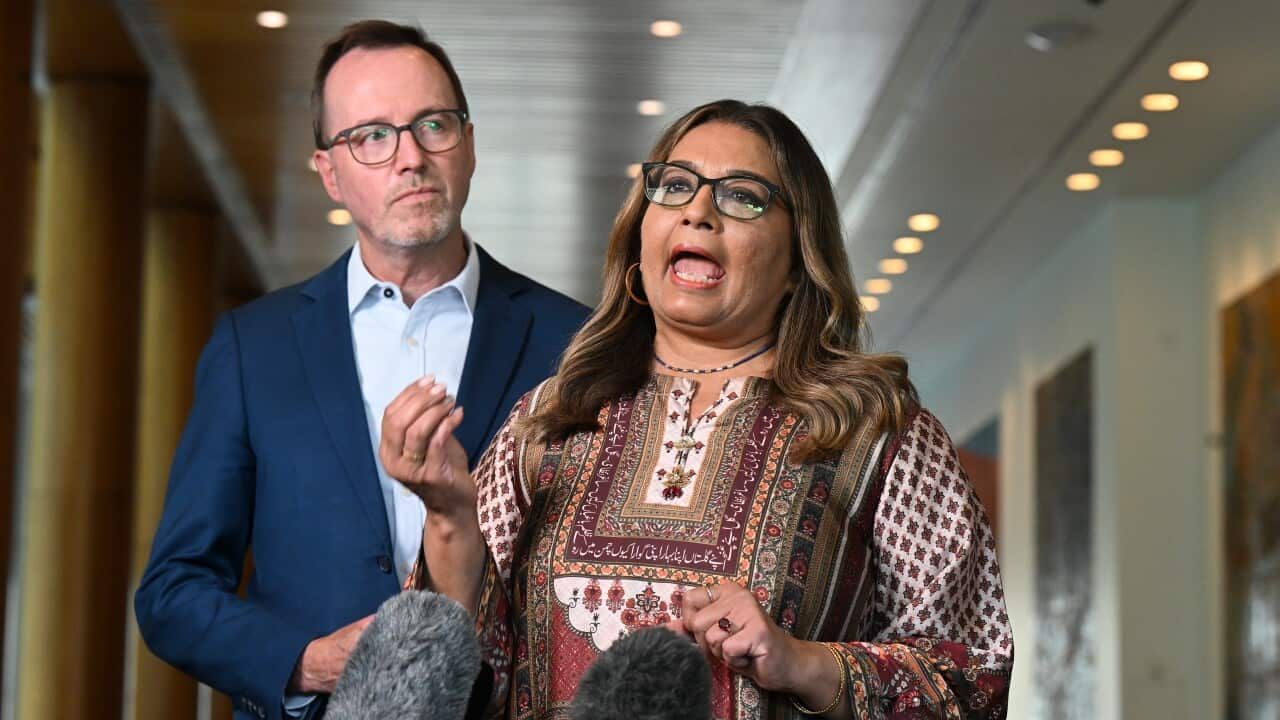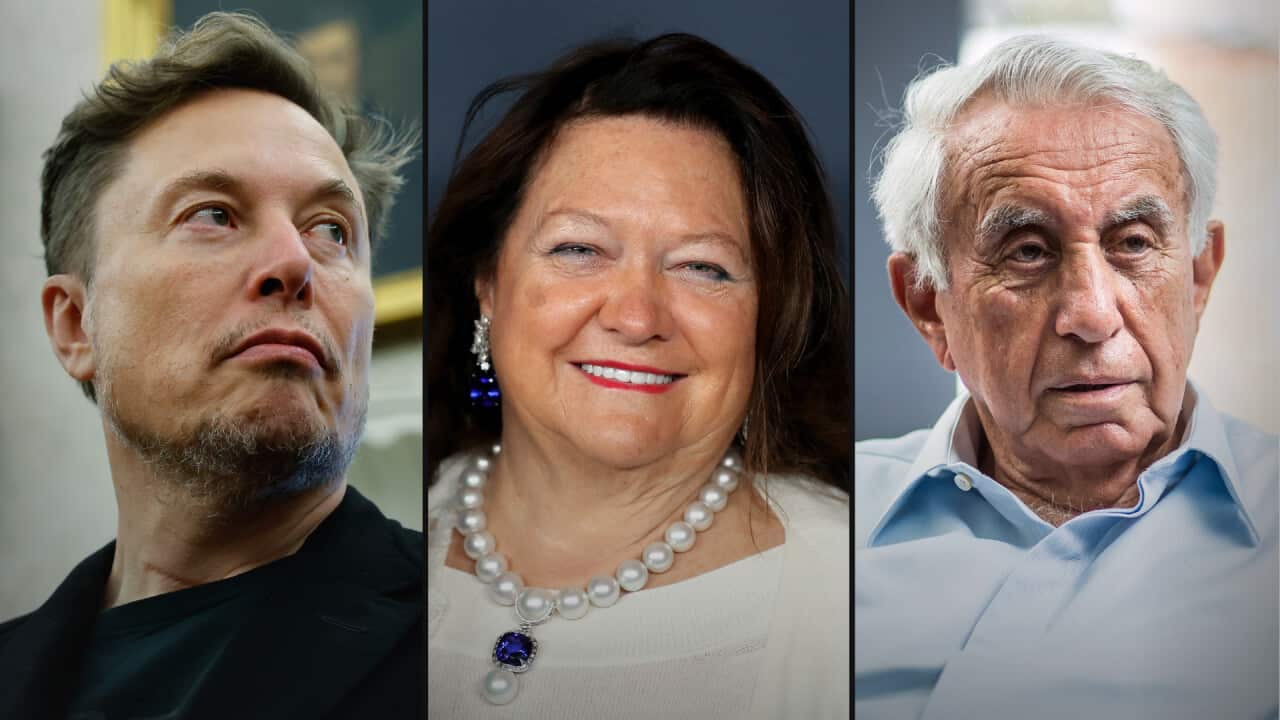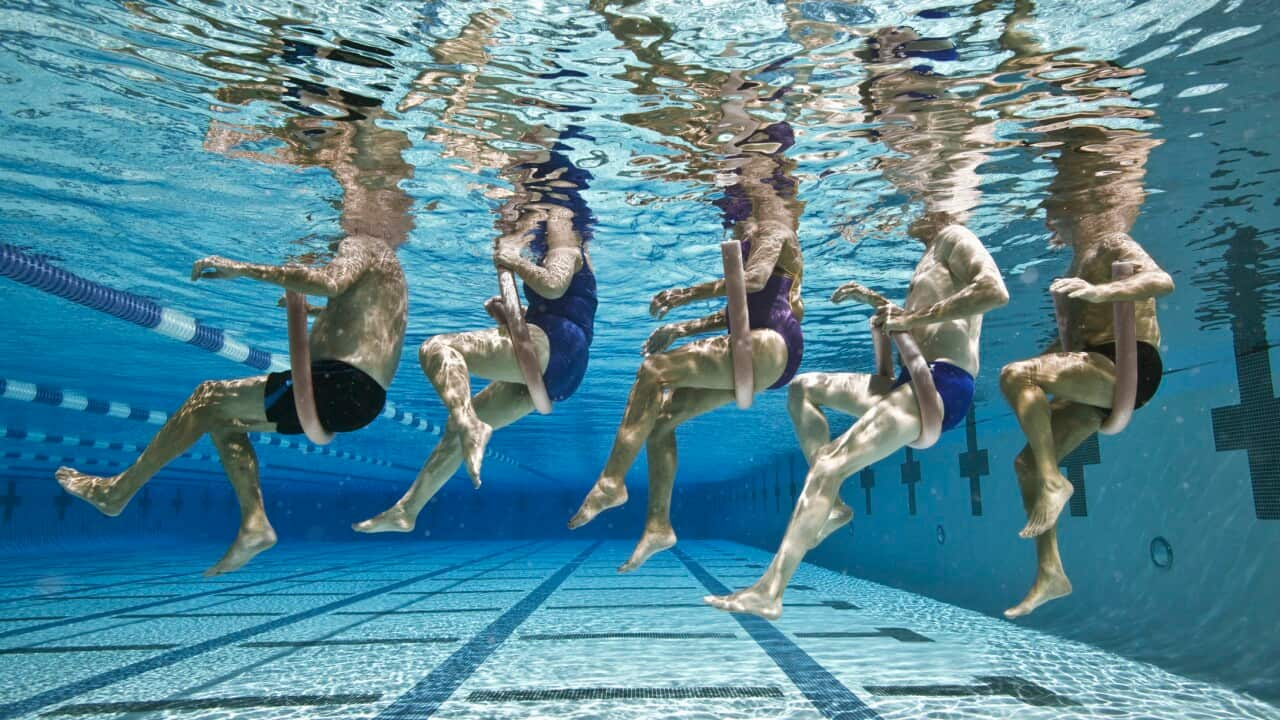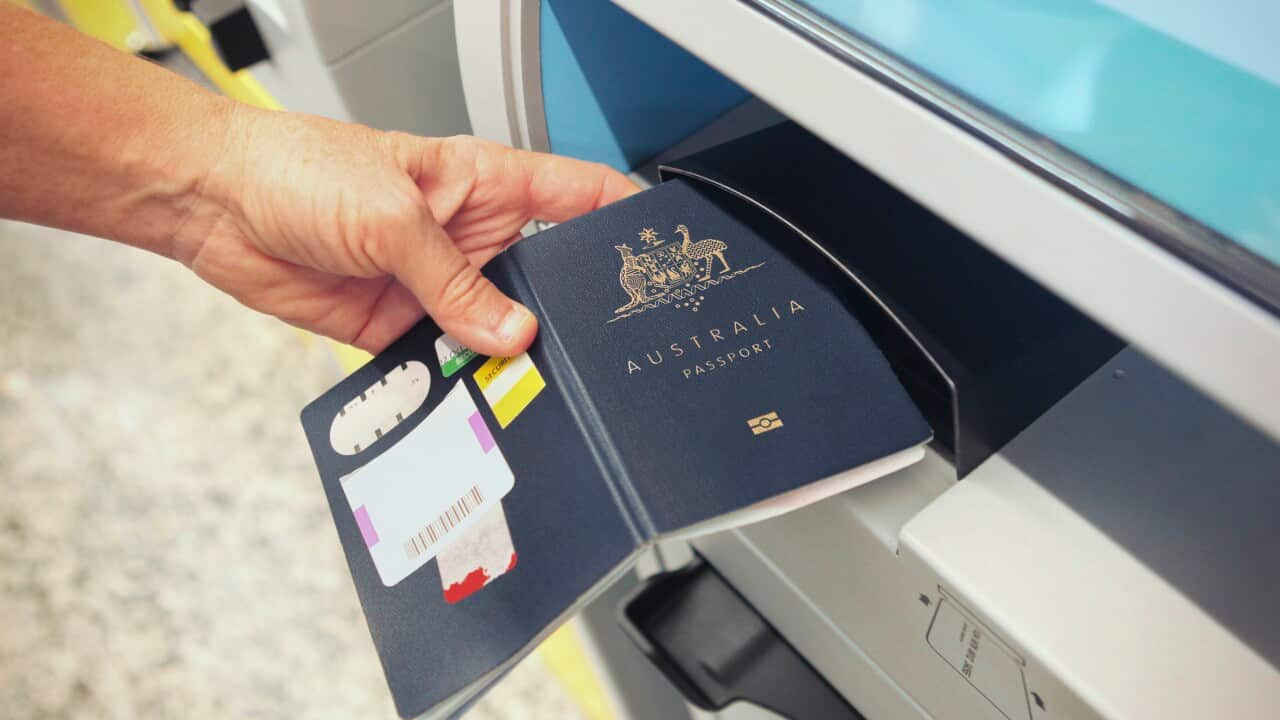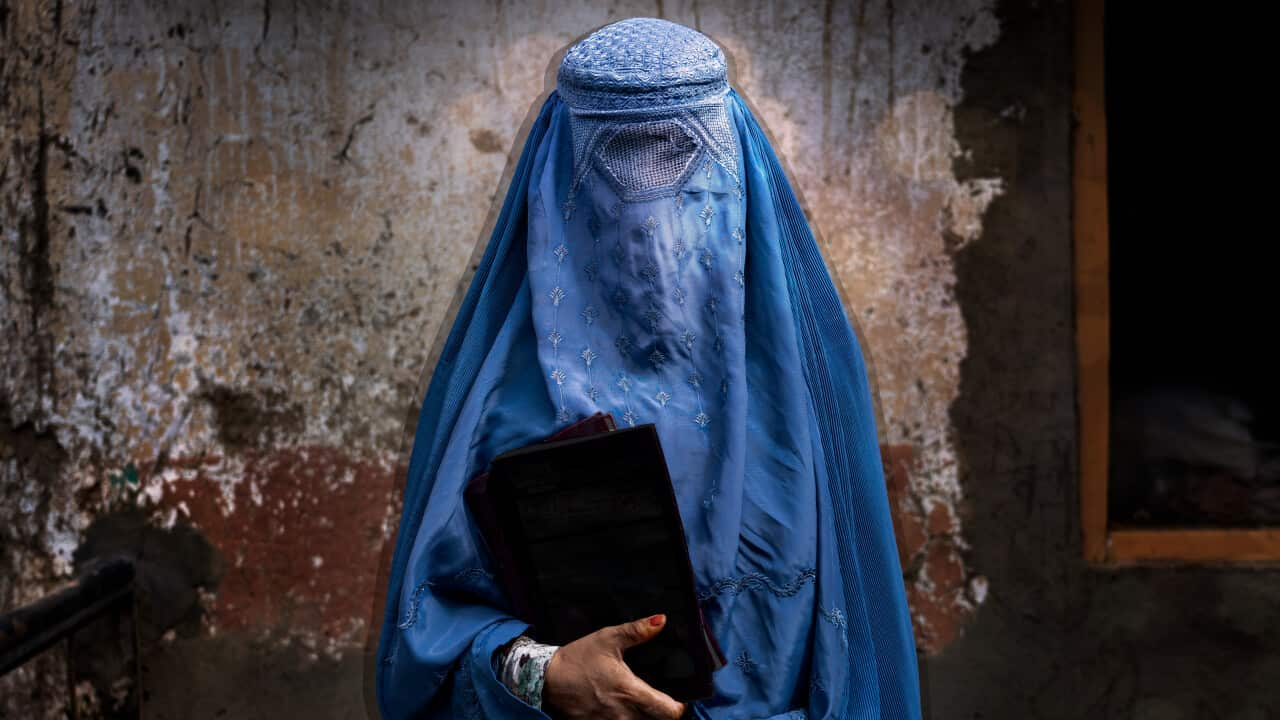Listen to Australian and world news, and follow trending topics with SBS News Podcasts.
TRANSCRIPT
Making headlines at home and abroad, the BBC is in the awkward position of reporting on itself.
"Some breaking news to bring you about the BBC. The BBC chairman has announced that both the Director General, Tim Davie, and the News CEO Deborah Turness are to resign..."
That's the UK's public broadcaster breaking news of two high-profile resignations at the top of its organisation.
It follows nearly a week of criticism, centred on a documentary broadcast by the BBC's Panorama unit last year, called Trump: A Second Chance.
The controversy focuses on an edit of US President's Donald Trump's speech to protesters at the Capitol on January 6, 2021 - which combined two separate excerpts, originally delivered 50 minutes apart.
Here's an original clip of Mr Trump's speech:
"We’re going to walk down to the Capitol, and we're gonna cheer on our brave Senators and Congressmen and women."
And here is what went to air on the BBC.
"We’re going to walk down to the Capitol and I’ll be there with you, and we fight. We fight like hell.”
An internal dossier, drafted by a consultant hired to guide the BBC on standards, called the edit “very misleading.”
The dossier was published in part by the Daily Telegraph newspaper last week.
The consultant was Michael Preston, a former journalist and former adviser to Theresa May, when she was Conservative Prime Minister.
As well as highlighting the Trump edit, it raised concerns of anti-Israeli bias in BBC Arabic's coverage of the war in Gaza, and suggested coverage of transgender issues was influenced by the transgender community.
Pressure has been growing on the BBC ever since, with right-wing leaders and commentators, such as former Conservative P-M Boris Johnson calling for consequences.
"I'm afraid, folks, I am going to be in the sad position of finally cancelling my license fee payment. And I suggest you do the same."
In a statement announcing his resignation on Sunday, Director-General Tim Davie admitted mistakes were made and accepted ultimate responsibility, but said the BBC was delivering well overall.
Outgoing Chief Executive of News Deborah Turness also acknowledged full accountability, but rejected allegations of institutional bias.
Their resignations, unsurprisingly, were welcomed by President Trump via his Truth Social account.
"These are very dishonest people who tried to step on the scales of a Presidential Election. On top of everything else, they are from a Foreign Country, one that many consider our Number One Ally. What a terrible thing for Democracy!"
But while the high-profile resignations demonstrate public accountability, questions remain over the BBC's role and integrity.
Former editor of The Sun newspaper Kelvin MacKenzie says the BBC's role is becoming difficult in an increasingly fragmented media landscape.
"It's a controversial area - news. Constantly, there are at least two sides battling away, and in this country right now, there are probably six sides battling away, and I think it's impossible to keep everybody happy. And actually, things like the Trump doctoring of the tape are a massive, massive issue. When you start doing that to the President of the United States, what are you doing to somebody cleaning a window in Preston? You know, if you can't be trusted on that, what can you be trusted on?"
He goes on to say the BBC should drop news coverage altogether, in favour of reality television.
"My advice to the BBC would be to abandon its traditional role of news coverage. I would literally shut it down, and I would focus on Traitors and Strictly Come Dancing, because they're good at that, and these days they're not so good at covering the news."
But media observers here in Australia maintain public broadcasters are more important than ever as media content becomes more divisive, and politics risks becoming more populist.
Jane Goodall is an Emeritus Professor in the Writing and Society Research Group at Western Sydney University.
She says the Panorama documentary clearly breached journalistic codes and is guilty of disinformation - but not guilty of propaganda.
"Now, the narrative surrounding it, which is where the real kind of impetus lies, is that Trump was inciting people to riot. Now, that's where the real influence and force lies, but that narrative is actually substantiated from multiple sources in multiple ways. Probably first and foremost from the exhaustive Congressional inquiry that was conducted in the United States, and that did lead to an attempt at prosecution."
She warns that the real danger of such a mistake lies in damage to their reputation.
"The BBC has not been running a false narrative, but it has certainly been of a piece of absolute folly. And the consequence is that they are now being charged by people who do propagate information like the White House Press Secretary, Karoline Leavitt, who can then accuse them of being a hundred percent false news."
Professor Catharine Lumby from the University of Sydney says traditional media outlets are under increasing pressure to compete with social media.
And she believes public broadcasters have an obligation to educate the public about the importance of journalistic integrity - and mistakes should provide an opportunity to start a conversation.
"I think when underfunded public broadcasters are competing for the attention of a whole lot of people who are doom scrolling on their phones, it's understandable that they want to cut to a cheap shot or cut to the chase. But in fact, there's a stronger obligation on behalf of people who care about an agreed set of facts, who care about objectivity and a common conversation based on agreed facts to hold themselves to the highest standard of accountability. But I think if I had anything to do with running the BBC, I'd be pivoting to that conversation and saying, let's have it now. We screwed up. Let's talk about what matters."
